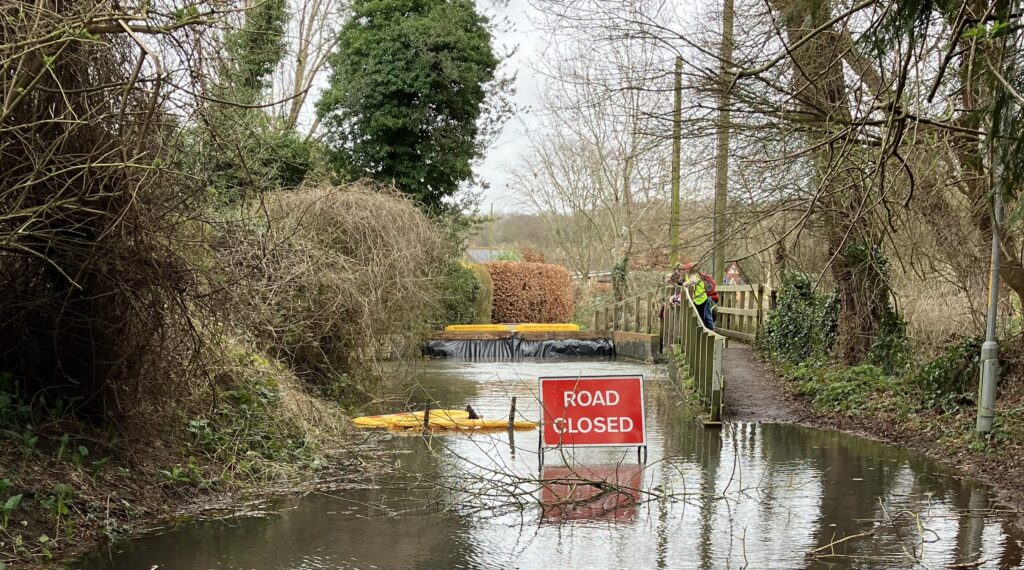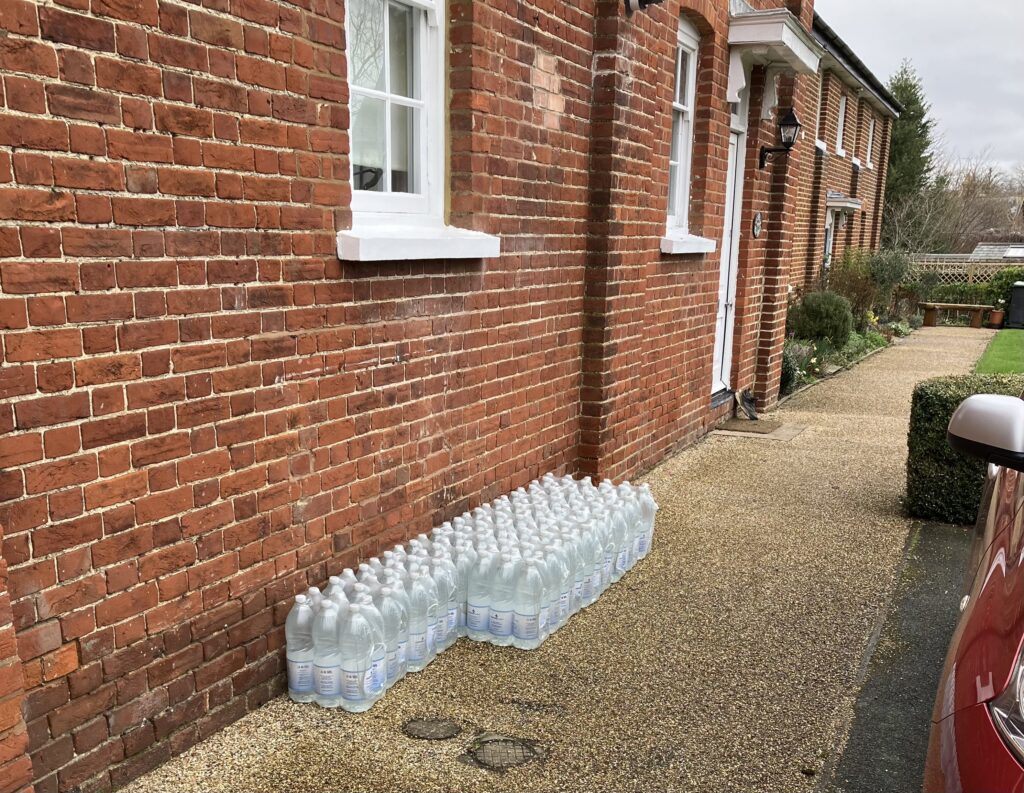It started with a text message from Southern Water late Friday afternoon apologising for the loss of water supply. I checked the taps and everything seemed fine so didn’t pay much attention. But then, the water pressure gradually began to fall and by late evening everything had dried up.
Southern Water had set up temporary bottled water supply stations a few minutes’ drive away but by the time our tap water ran out they had closed for the night. The next morning there was still no water so we cleared the ice from the car windscreen and set off to collect our water. We were allocated six two-litre bottles each, so I filled up a bucket from our kindly neighbour’s water butt for flushing water, and hoped the bottles of drinking water would suffice.
The problem, we were told, was at the nearby water works which had been inundated by the unusually heavy rain. Yes, too much rain had damaged the water supply system. By mid-afternoon on Saturday, a temporary fix had been put in place, which involved pumping tanker water into the system. We acquired another dozen bottles just to be safe.
Finally, around midday on Sunday, Southern Water announced that the problem had been resolved, and indeed both hot and cold taps were working again – for the time being at least.
Years of neglect combined with climate change have made the rural infrastructure here far more vulnerable. One of the first things I noticed on our return to my old house after 15 years in Hong Kong was that the wind was much stronger and gusts more persistent than before, an observation confirmed by my farm-worker neighbour. When we returned here in the middle of summer there was a drought, and the river in the village was dry. Now, 18 months later, the river is dangerously close to flooding and the surrounding fields are sodden.

Last winter, the numerous gales led to dozens of mini-power cuts, which meant every electrical device in the house had to be constantly reset. Then, one particularly cold evening, the whole village was plunged into darkness for several hours. This prompted UK Power Networks to really investigate and fix the problem. So, there are fewer mini-power cuts now but another winter storm just a few months ago meant we went nearly a whole day without power.
The response of Southern Water to the significantly altered climate seems to be purely reactive. Rather than invest the resources needed to fully upgrade and modernise the system so that water security for rural communities can be guaranteed, they focus on emergency repairs and hand out bottled water to customers. The company contracted local van drivers to deliver bottled supplies to every house in the village even after the repairs were complete, and regardless of whether it was needed or not. Even my old house, which is empty and up for sale, had 12 bottles on the doorstep on Sunday morning and my neighbours had even more.

Of course, investing in rural infrastructure would involve a lot of expenditure for a limited number of customers, and would detract from the main priority of providing substantial dividends for shareholders and bonuses for directors. Southern Water made a profit of £285 million last year, compared with £761 million in 2022 while dumping raw sewage in the sea, and passing costs on to the customer. Oh, yes, and last month, its lack of cyber security led to up to one tenth of customers’ data being stolen and put up for sale on the dark web.
I wonder how much longer the great British sense of forbearance (keep calm and carry on) will last as the rural infrastructure crumbles around us. People routinely complain about the avarice of the utility companies but are at a loss to come up with a solution. In England, the private water companies (usually majority owned by foreign interests) are supposed to be regulated by the Water Services Regulation Authority but its remit is largely restricted to pricing measures and most water companies are left alone to manage their own little monopoly on household supply with little effective oversight.
Renationalising the system would probably be prohibitively expensive but there must be a better way of holding profit-seeking companies to account.
One answer might be just across the North Sea in Holland, a country that takes water security very seriously as vast tracks of its land are below sea level. The water board (waterschap) system is a network of regional government organizations (under a national umbrella organization) whose sole responsibility is the management of all aspects of water from flood control to drainage, water quality and sewage treatment in their respective regions. The system dates back to the 12th century and is still functioning today so it must be doing something right.
At the very least, we could examine in detail how the waterschap system works in practice and what aspects of it can be adopted here. This would require a bold initiative from central government but that seems unlikely coming from either major political party at the moment.